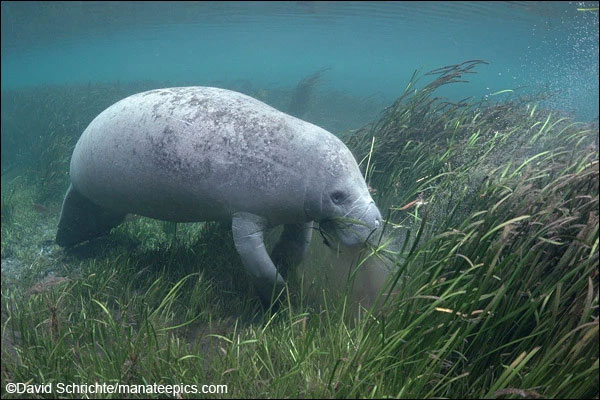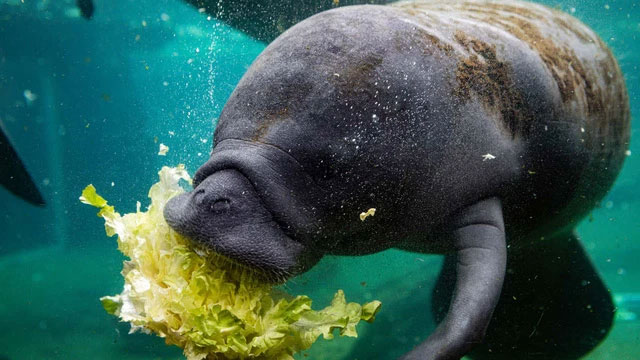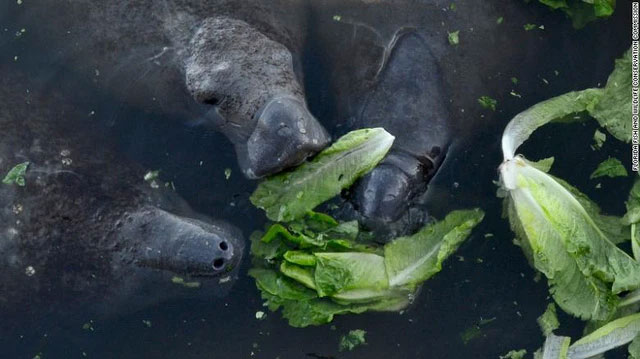Florida, USA, has recently intensified its manatee feeding support program in collaboration with conservation groups, aiming to save this large marine mammal from the dire consequences of starvation due to the disappearance of its favorite food, seagrass, in the area.
The Florida Fish and Wildlife Conservation Commission has launched a major rescue campaign to assist manatees. Manatees are currently facing unusual deaths, likely due to a lack of seagrass. They typically graze on seagrass in the lagoons north of Cape Canaveral on Florida’s east coast.

Seagrasses are the primary natural food source for manatees.
An announcement noted that recent algal blooms in the lagoons have killed off seagrass, leaving manatees without food. According to The Guardian, the area of seagrass has decreased by nearly 200 square kilometers since 2009, leaving the population of 7,500 manatees in the state without a valuable primary food source.
To prevent starvation, conservation groups are regularly distributing lettuce (primarily romaine) as an alternative food source for manatees. At a press conference on February 22, officials stated they will increase the amount of lettuce to over 9 tons per week. So far, manatees have shown a preference for this substitute food.

Conservation groups regularly distribute lettuce (primarily romaine) to manatees.
According to Florida statistics, there were 841 manatee deaths reported in the first half of 2021 alone, with over 300 manatees dying since the beginning of 2022. In February, a rescue group saved six manatees. Those that are too weak to survive in the wild (due to injuries, starvation, or other causes) are taken to a rehabilitation facility to recover before being released.
The feeding program for manatees started last year but is now expected to continue until the end of March. However, feeding thousands of manatees lettuce is not a long-term plan to restore their population.

Manatees eating lettuce.
Manatees were reclassified from endangered to threatened status in 2017, resulting in fewer legal protections. Unless water quality improves in manatees’ habitats, their troubles are likely to persist.


















































